979 results
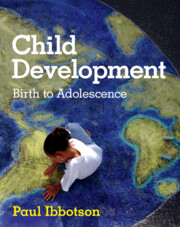
Child Development
- Birth to Adolescence
- Coming soon
-
- Expected online publication date:
- May 2025
- Print publication:
- 31 May 2025
-
- Textbook
- Export citation
Chapter 11 - The Timescale of Deep History and of Human Evolution
- from Part II - Entangled Timescales of Visual Arts
-
- Book:
- A Complex Systems View on the Visual Arts
- Published online:
- 20 March 2025
- Print publication:
- 03 April 2025, pp 303-328
-
- Chapter
- Export citation
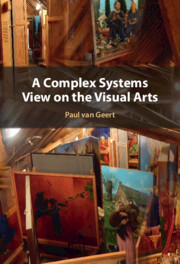
A Complex Systems View on the Visual Arts
-
- Published online:
- 20 March 2025
- Print publication:
- 03 April 2025
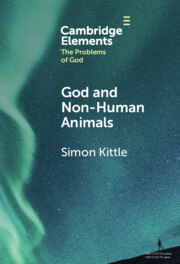
God and Non-Human Animals
-
- Published online:
- 20 March 2025
- Print publication:
- 27 March 2025
-
- Element
- Export citation
Games and gamification in archaeology: Developing analogue modelling as a research tool into cultural evolutionary processes
-
- Journal:
- Archaeological Dialogues , First View
- Published online by Cambridge University Press:
- 19 March 2025, pp. 1-17
-
- Article
-
- You have access
- Open access
- HTML
- Export citation
The rise of cooperation in correlated matching prisoners dilemma: An experiment
-
- Journal:
- Experimental Economics / Volume 10 / Issue 1 / March 2007
- Published online by Cambridge University Press:
- 14 March 2025, pp. 3-20
-
- Article
- Export citation
Seminal contributions of Timothy J. Crow
-
- Journal:
- Psychological Medicine / Volume 55 / 2025
- Published online by Cambridge University Press:
- 07 March 2025, e75
-
- Article
-
- You have access
- Open access
- HTML
- Export citation
11 - The Benefits and Costs of Empathy in Moral Decision Making
- from Part II - Thinking and Feeling
-
-
- Book:
- The Cambridge Handbook of Moral Psychology
- Published online:
- 20 February 2025
- Print publication:
- 27 February 2025, pp 248-270
-
- Chapter
- Export citation
17 - Grounding Moral Psychology in Evolution, Neurobiology, and Culture
- from Part IV - Origins, Development, and Variation
-
-
- Book:
- The Cambridge Handbook of Moral Psychology
- Published online:
- 20 February 2025
- Print publication:
- 27 February 2025, pp 409-432
-
- Chapter
- Export citation
Chapter 18 - My Journey to Become a Cultural Developmental Psychologist
-
-
- Book:
- Pillars of Developmental Psychology
- Published online:
- 14 February 2025
- Print publication:
- 20 February 2025, pp 197-208
-
- Chapter
- Export citation
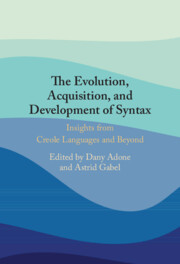
The Evolution, Acquisition and Development of Syntax
- Insights from Creole Languages and Beyond
-
- Published online:
- 19 February 2025
- Print publication:
- 06 February 2025
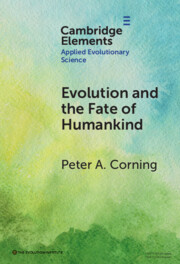
Evolution and the Fate of Humankind
-
- Published online:
- 15 February 2025
- Print publication:
- 27 February 2025
-
- Element
- Export citation
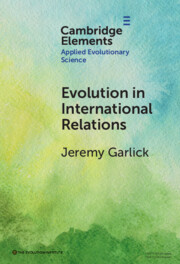
Evolution in International Relations
-
- Published online:
- 07 February 2025
- Print publication:
- 06 March 2025
-
- Element
- Export citation
Chapter 6 - H. G. Wells on the Possibilities of Painlessness
- from Part III - Representing Pain
-
- Book:
- Vivisection and Late-Victorian Literary Culture
- Published online:
- 30 January 2025
- Print publication:
- 06 February 2025, pp 157-182
-
- Chapter
- Export citation
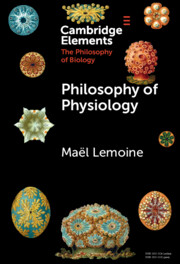
Philosophy of Physiology
-
- Published online:
- 27 January 2025
- Print publication:
- 13 February 2025
-
- Element
- Export citation
Chapter 3 - Samuel Butler
- from Part I - 1850–1900
-
-
- Book:
- The British Novel of Ideas
- Published online:
- 05 December 2024
- Print publication:
- 12 December 2024, pp 64-79
-
- Chapter
- Export citation
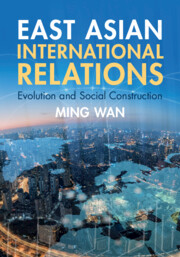
East Asian International Relations
- Evolution and Social Construction
-
- Published online:
- 28 November 2024
- Print publication:
- 19 December 2024
-
- Textbook
- Export citation
1 - Beginnings
-
- Book:
- Charles Darwin
- Published online:
- 05 December 2024
- Print publication:
- 28 November 2024, pp 4-19
-
- Chapter
- Export citation
2 - Charles Robert Darwin
-
- Book:
- Charles Darwin
- Published online:
- 05 December 2024
- Print publication:
- 28 November 2024, pp 20-35
-
- Chapter
- Export citation
8 - Intelligence
-
- Book:
- Understanding the Nature‒Nurture Debate
- Published online:
- 07 November 2024
- Print publication:
- 21 November 2024, pp 116-131
-
- Chapter
- Export citation


